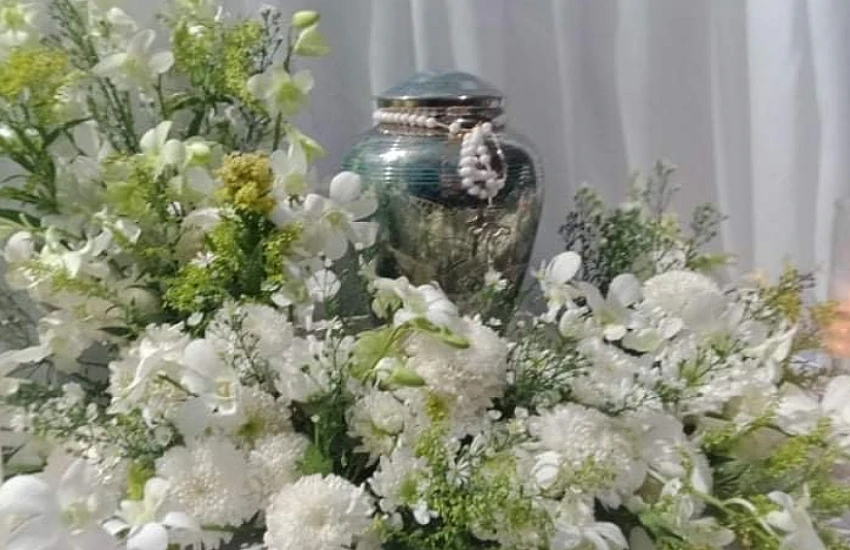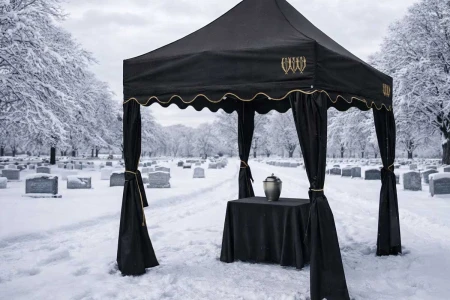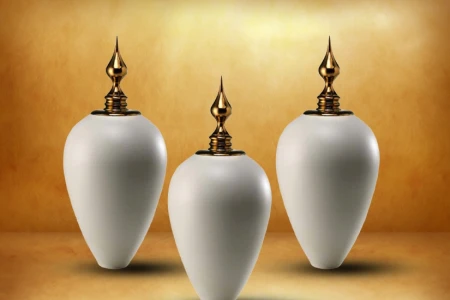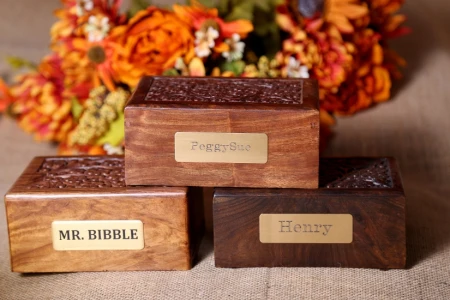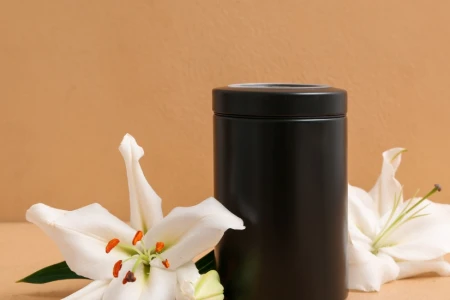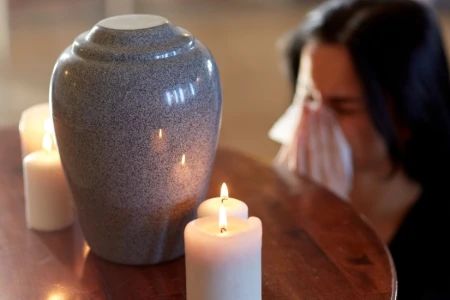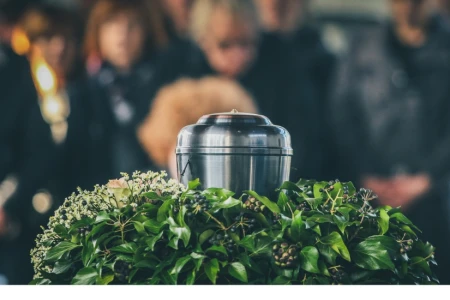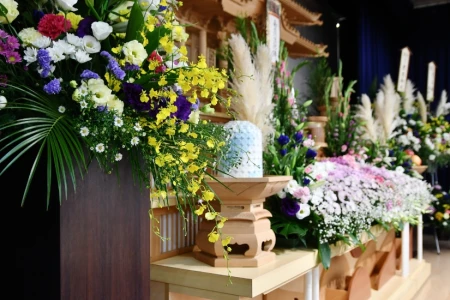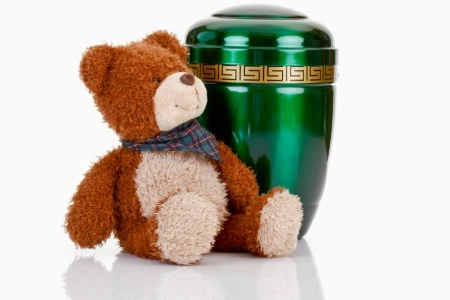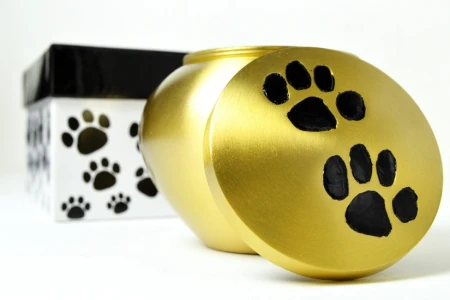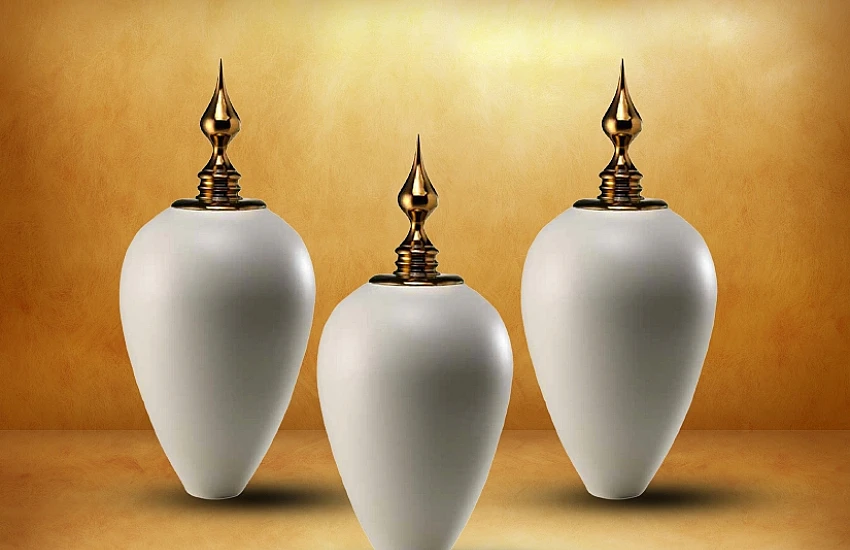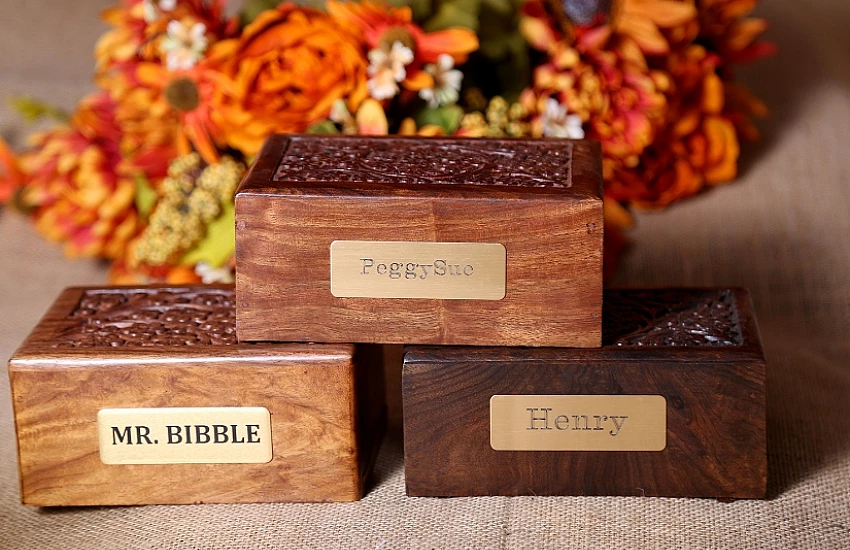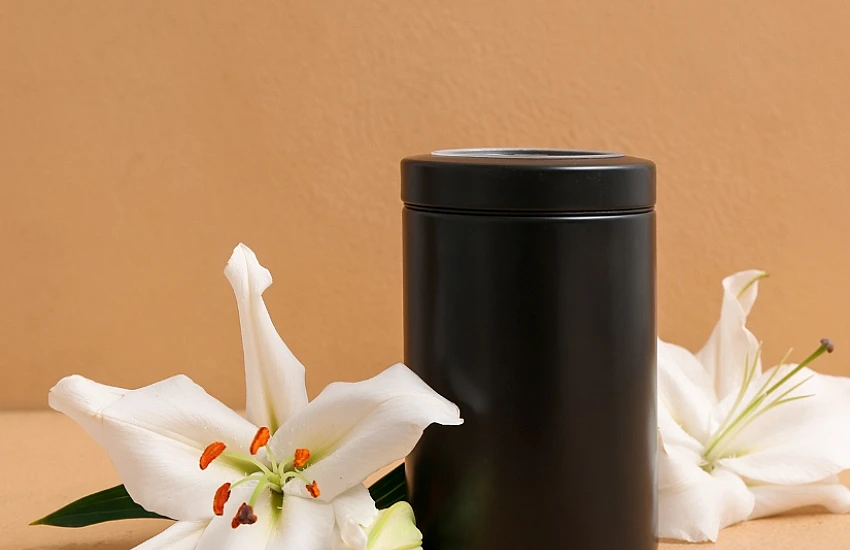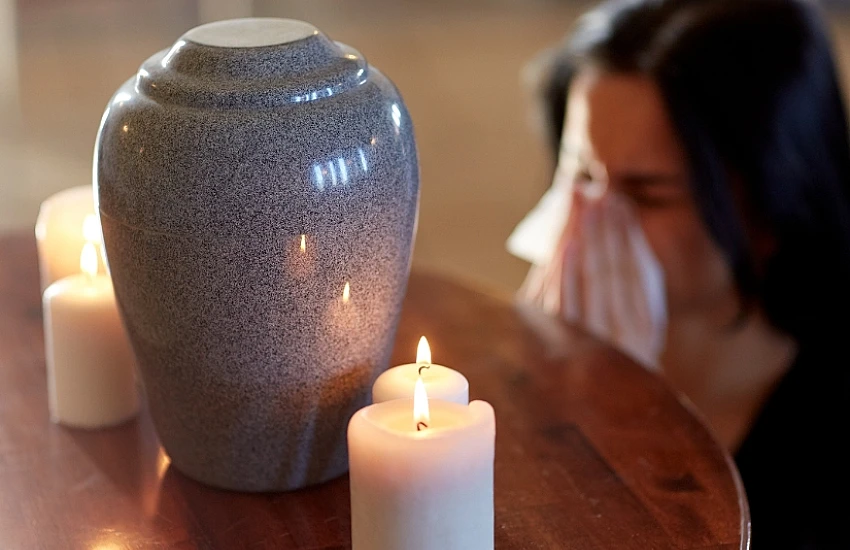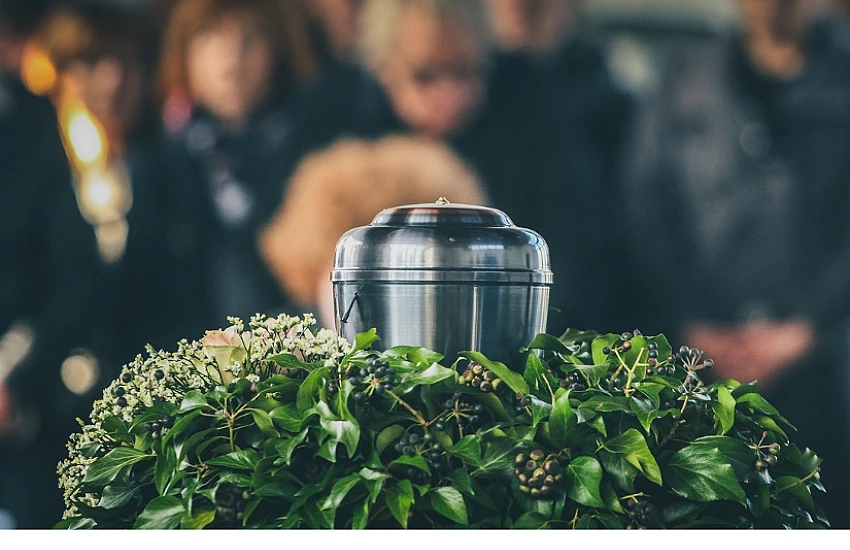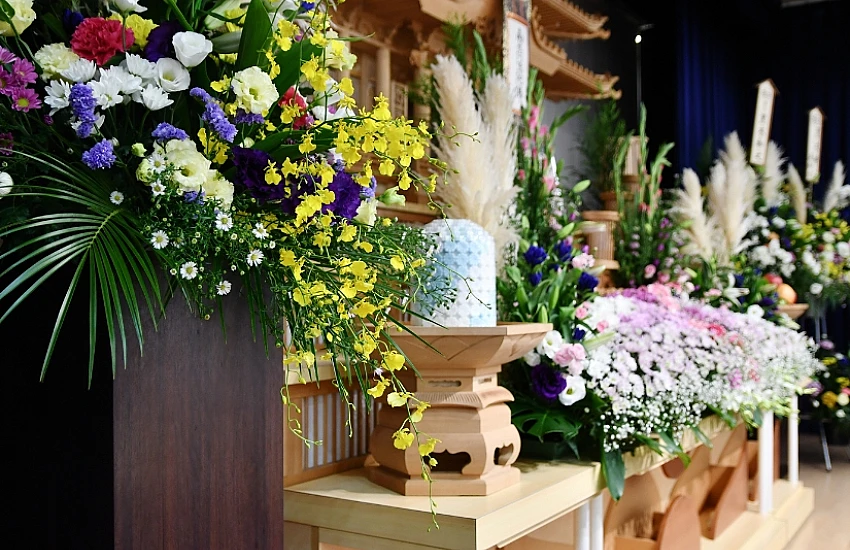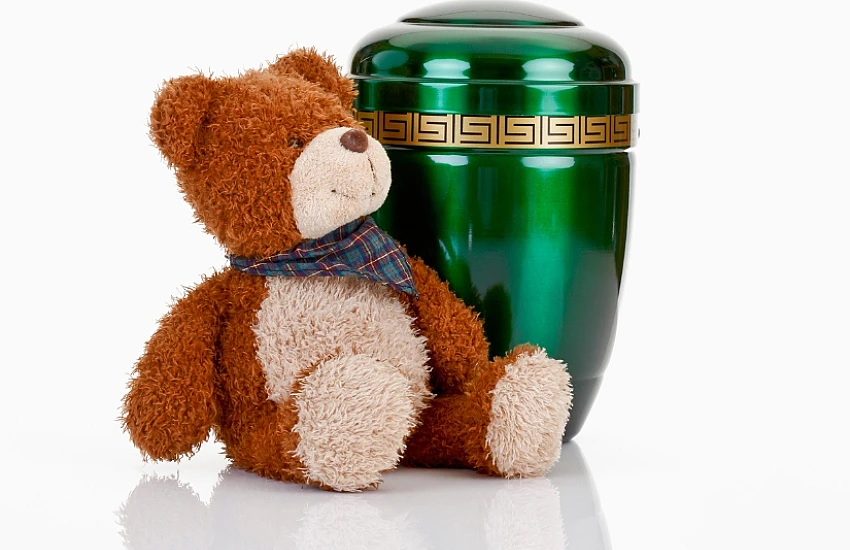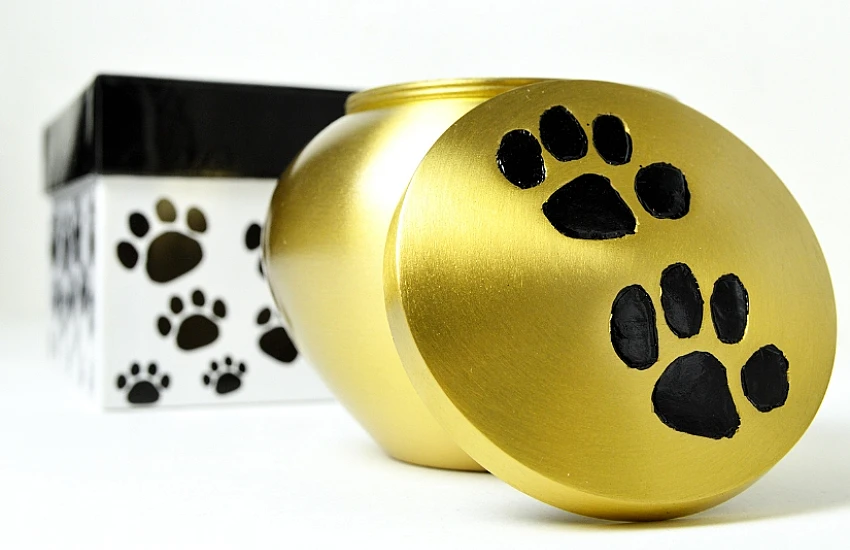Table of Contents
- Why Does Choosing a Funeral Urn Matter?
- The History of Funeral Urns – From Tradition to Modernity
- How Do Colors and Materials Influence the Symbolism of an Urn?
- Materials Used in Funeral Urn Production
- Cultural and Religious Aspects of Color and Material Symbolism
- Choosing an Urn as a Symbolic Gesture
- 10 Frequently Asked Questions About the Symbolism of Colors and Materials in Funeral Urns
Every element of a funeral ceremony carries deep meaning—from farewell words and music to the choice of an urn. Although often considered a technical detail, an urn can hold significant symbolism, reflecting both the deceased's personality and the emotions of their loved ones. The colors and materials of funeral urns go beyond aesthetics. Black or white? Stone, wood, or metal? Each choice can be a subtle expression of memory, spiritual values, or the emotions surrounding the farewell. Does a white urn symbolize innocence? Does a stone urn emphasize the permanence of remembrance? In this article, we explore the symbolism of colors and materials in funeral urns, helping you understand how these choices can serve as a unique tribute to the deceased. After all, selecting an urn means choosing a final resting place—one that deserves thoughtful consideration.
Why Does Choosing a Funeral Urn Matter?
A funeral urn is more than just a container for the deceased’s ashes. It represents respect, memory, and the emotions accompanying mourning. The color and material of the urn can symbolize the deceased’s personality, beliefs, or even reflect religious and cultural traditions. Today, urns come in a wide range of styles, from minimalist designs to artistically decorated pieces.

The History of Funeral Urns – From Tradition to Modernity
The history of funeral urns dates back thousands of years.
In ancient times, ceramics and stone were commonly used, often adorned with religious or mythological motifs. During the Middle Ages, urns took on a more symbolic role, with materials such as wood and metal becoming increasingly significant. Today, urns combine tradition and modernity, balancing elegance with functionality.
How Do Colors and Materials Influence the Symbolism of an Urn?
Every color and material carries a unique meaning, expressing the character of the deceased and the emotions of those saying goodbye.
While colors can highlight simplicity and purity, materials represent durability and strength.

Symbolism of Colors in Funeral Urns
The Cultural and Traditional Importance of Colors
Colors play a crucial role in different cultures and religions.
In Western cultures, black symbolizes mourning and solemnity, whereas in many Eastern traditions, white is the color of grief.
The choice of an urn’s color may also be inspired by the deceased’s preferences or life values.
The Meaning of the Most Commonly Chosen Colors
White – Purity, peace, and a new beginning
White is a universal symbol of purity and harmony. In funeral urns, it often represents innocence and spiritual rebirth, making it ideal for those who lived in simplicity and peace.

Black – Mourning, solemnity, and reflection
Black is the most traditional choice, symbolizing deep reflection and respect for the deceased.
Gold – Nobility, dignity, and eternity
Golden urns represent wealth, prestige, and eternity. They are often chosen to highlight the deceased’s spiritual or personal legacy.

Silver – Spirituality, harmony, and elegance
Silver symbolizes delicacy and spirituality. Silver urns reflect harmony and the peace that characterized the deceased’s life.

Blue – Peace, hope, and the sky
Blue urns evoke transcendence, hope, and connection to the heavens, symbolizing peace and spiritual comfort.

Green – Life, renewal, and closeness to nature
Green represents life and renewal. Green urns combine spirituality with nature, highlighting the deceased’s ecological values.

Unconventional Colors and Their Meanings
Urns in unique colors, such as purple, pink, or orange, can be a tribute to the deceased’s individuality and passions.
Purple symbolizes spirituality.
Orange represents joy and life energy.
How Can the Color of an Urn Reflect the Deceased’s Personality?
The choice of an urn’s color can reflect traits of the deceased’s character, such as calmness, creativity, or elegance. Selecting a favorite color can be a meaningful way to honor their memory.
Materials Used in Funeral Urn Production
Traditional Materials and Their Symbolism
Wood – Warmth, nature, and closeness to the earth
Wooden urns pay tribute to natural beauty and simplicity, making them ideal for those who valued ecology.

Metal (Steel, Brass, Bronze) – Durability, strength, and protection
Metal urns are known for their resilience and elegance. They symbolize strength and long-term remembrance.

Ceramics – Fragility, beauty, and uniqueness
Ceramic urns are appreciated for their artistic craftsmanship and delicate appearance, emphasizing the uniqueness of the deceased.
Stone (Marble, Granite) – Immortality, stability, and prestige
Stone urns symbolize permanence and dignity, adding a sense of solemnity to funeral ceremonies.

Modern and Eco-Friendly Solutions
Biodegradable Materials – Environmental consciousness and return to nature
Biodegradable urns are made from materials like paper and wood, allowing for a natural return to the earth.
Glass – Artistic expression and delicacy
Glass urns are chosen for their artistic appeal, symbolizing the beauty and fragility of life.
Composites and Synthetic Materials – Innovation and variety
Composite urns offer durability and a wide range of shapes and colors.
How Do Materials Affect the Price and Durability of an Urn?
Materials like stone and metal provide greater durability but come at a higher cost. The choice of material should consider the urn’s storage location and the family's preferences.
Cultural and Religious Aspects of Color and Material Symbolism
Symbolism in Different Religions (Christianity, Buddhism, Hinduism)
Different religions attribute specific meanings to colors and materials.
In Christianity, a white urn symbolizes redemption.
In Hinduism, white is associated with mourning.
How to Avoid Cultural Faux Pas When Choosing an Urn?
Understanding the traditions and customs of a particular culture can help ensure a respectful and appropriate urn selection.
Choosing an Urn as a Symbolic Gesture
An urn represents memory and respect for the deceased. Its selection reflects the values and life of the person being honored.
Combining Tradition with Modern Solutions
Today’s urns integrate traditional values with modern design and eco-friendly solutions.
Tips for Finding the Right Urn in a Funeral Supply Store
Consider the symbolism of colors, the durability of materials, and personalization options to make a choice that best represents the deceased’s character.

10 Frequently Asked Questions About the Symbolism of Colors and Materials in Funeral Urns
1. What does the color of a funeral urn mean?
Black – Mourning, solemnity, respect
White – Innocence, spirituality, new beginnings
Gold – Dignity, remembrance, eternity
Blue – Peace, hope
2. Does the material of an urn have symbolic meaning?
Stone – Permanence and immortality
Wood – Nature and simplicity
Metal – Strength and durability
Ceramics – Fragility and beauty
3. How to match the urn’s color to the deceased’s personality?
Choose based on their favorite colors or traits. Warm colors for vibrant personalities, cooler tones for those who were calm and composed.
4. Do religious traditions influence urn selection?
Yes, colors and materials can hold specific religious meanings.
5. Are wooden urns durable?
Less so than stone or metal, but they symbolize nature and the cycle of life.
6. Why choose metal urns?
They are long-lasting and symbolize eternal remembrance.
7. What is the significance of ceramic urns?
They highlight the beauty and transience of life.
8. Are all urns dark in color?
No, modern urns come in various shades, from pastels to vibrant tones.
9. What are the most popular urns in Poland?
Metal urns in black, navy, and gray are common, but wooden and ceramic urns are gaining popularity.
10. Can an urn be personalized?
Yes, many can be customized with engraving or unique designs.

